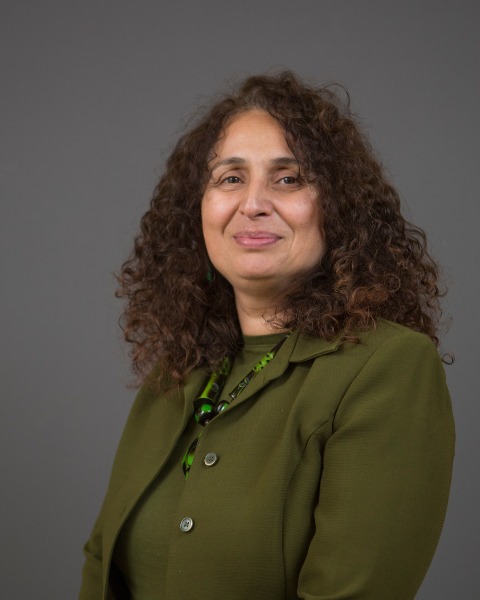Back
Latina / Latino Issues
Exploring Latinx Community’s Well-Being during COVID-19 Crisis in an Oppressed Community
Saturday, November 12, 2022
10:45 AM – 11:15 AM
Location: El Capitan B

Leyla Feize, PhD., LCSW-S
Associate professor
UTRGV
Edinburg, Texas, United States- MM

Enedina Enriquez, Dr.
Clinical Associate Professor
UTRGV
Edinburg, Texas, United States
Author and Presenter(s)
Co-Author and Presenter(s)
Overview: Through a mixed-methods research design, the pandemic’s impacts in an oppressed community explored. The results highlighted the widening inequalities currently seen, and the necessity of supporting oppressed communities during crises.Proposal text: A crisis is a serious and stressful situation that brings instability and uncertainty. Although the COVID-19 crisis includes many characteristics of other crisis, it is unique in some respects. It is a worldwide life-threatening and long-term crisis with unknown consequences. The outcomes of the COVID-19 pandemic are mostly under exploration and investigation. The effects of the pandemic on mental health are incontrovertible. “Lock down” and an almost inevitable increase in sedentary behaviors effect individuals’ health including mental health (Tison et al., 2020). Maladaptive and destructive behaviors have increased during the COVID-19 crisis. In the early months of quarantine, in the U.S. there was a reported 54% increase in alcohol sales in March 2020, which may have affected people’s physical and mental health such as their anxiety and depression, even further (Pollard, Tucker, & Green, 2020).
X is one of the most vulnerable areas in the United States. It is a home of 98% of Hispanic/Latino (U.S. Census Bureau Quick Facts, 2019) where 1/3 of the population lives in poverty (Ura, 2016). Based on the latest data (November, 26, 2021), in X County one of the poorest county in Texas, with a population of 806,447 (Ura, 2016) a total of 115, 971 cases have been infected with the virus and 3,152 death were reported (USA Facts, 2021). In early stage of the pandemic, when the country and RGV was exhausted with the numbers of infected with Covid and the lives lost, the authors wanted to quantify the mental and physical effects covid was having on member of the RGV community.
The study design was a mixed-methods approach consisting of quantitative and qualitative sections. We distributed a survey among students, parents, teachers, and other staff in a school in Pharr district. We targeted a school due to the inclusivity of the community members and the feasibility factor during the crisis. The results of 226 collected surveys indicated that the pandemic affected the participants’ well-being. Preliminary data analysis indicated that one-third of the professionals reported high level of anxiety by the pandemic and that there was no relationship between their level of income and their reported anxiety. The majority of the parents reported severe anxiety due to the lack of insurance, losing income, and the lack of, or unreliable, social support. The students showed severe anxiety as well, but due to the lack of sufficient food, the loss of interaction with their peers, teachers and relatives, and the loss of family members due to COVID-19. This finding mirrors the inequality seen in pandemic era, and the necessity of supporting disadvantaged and oppressed communities during crises.
X is one of the most vulnerable areas in the United States. It is a home of 98% of Hispanic/Latino (U.S. Census Bureau Quick Facts, 2019) where 1/3 of the population lives in poverty (Ura, 2016). Based on the latest data (November, 26, 2021), in X County one of the poorest county in Texas, with a population of 806,447 (Ura, 2016) a total of 115, 971 cases have been infected with the virus and 3,152 death were reported (USA Facts, 2021). In early stage of the pandemic, when the country and RGV was exhausted with the numbers of infected with Covid and the lives lost, the authors wanted to quantify the mental and physical effects covid was having on member of the RGV community.
The study design was a mixed-methods approach consisting of quantitative and qualitative sections. We distributed a survey among students, parents, teachers, and other staff in a school in Pharr district. We targeted a school due to the inclusivity of the community members and the feasibility factor during the crisis. The results of 226 collected surveys indicated that the pandemic affected the participants’ well-being. Preliminary data analysis indicated that one-third of the professionals reported high level of anxiety by the pandemic and that there was no relationship between their level of income and their reported anxiety. The majority of the parents reported severe anxiety due to the lack of insurance, losing income, and the lack of, or unreliable, social support. The students showed severe anxiety as well, but due to the lack of sufficient food, the loss of interaction with their peers, teachers and relatives, and the loss of family members due to COVID-19. This finding mirrors the inequality seen in pandemic era, and the necessity of supporting disadvantaged and oppressed communities during crises.
Learning Objectives:
- After attending this session, participants will be familiarized with the impact of COVID-19 on global, national, and local levels.
- After attending this session, participants will learn about the impact of COVID-19 on adults in X disadvantaged community.
